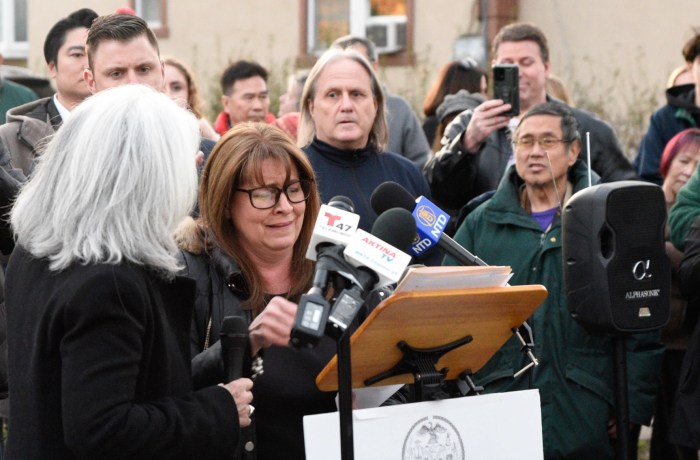BY SAM SPOKONY | Councilmember Margaret Chin on Feb. 4 introduced legislation aimed at helping tenants who are forced out of their homes by city vacate orders.
Buildings can be vacated unexpectedly by agencies such as the Department of Buildings or the Department of Housing Preservation and Development based on health-code violations or structural hazards, and tenants in those situations are essentially left homeless for indefinite lengths of time.
Chin’s bill would mandate that H.P.D. require landlords to deposit money in escrow — with H.P.D. holding the escrow — in order to supply reliable funding for tenant relocation in the event of a vacate order.
“In the midst of the all the disorder of vacating one’s home, residents should at least have the assurance of a place to go until they can make more permanent arrangements,” said Chin, in a statement after the bill was introduced. “Holding building owners responsible for the welfare of their tenants after a vacate makes things a bit easier for families, and takes some of the uncertainty out of an already difficult situation.”
Given the fact that much of the city’s affordable housing stock is aging — and, in some cases, deteriorating — the problem of sudden vacate orders has significant implications for thousands of tenants, especially those in Chinatown and the Lower East Side.
D.O.B. issued 1,496 partial-vacate orders and 346 full-vacate orders in 2013, according to an agency spokesperson. Those numbers, however, include orders for all types buildings, not just residential.
In Chinatown, vacate orders at 47 Bayard St. left nearly 30 people without homes last month. Last July, around 50 tenants struggled after their 17 Pike St. building was vacated.
In her Feb. 4 statement, Chin highlighted the sense of urgency and panic that overwhelms residents dealing with this problem, stating that emergency shelter and aid currently offered by the city, the Red Cross and community organizations is often “too little and too late.”
There are some questions, though, surrounding the bill at this early stage, which may affect it moving forward.
Most notably, H.P.D. is struggling severely with multimillion-dollar budget shortfalls due to a recent decrease in its federal funding, and it’s hard to know at this point whether the agency can handle this kind of new administrative burden. Additional funding and staffers would likely be required for H.P.D. to effectively enforce the proposed mandate on landlords.


















